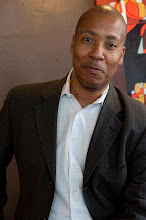
WOOOOHOOOO!!!!!!!! MY FIRST IMAGE POSTED TO MY BLOG. I just figured out how to do this.
OK. So, on Xmas day, I had dinner with a friend and some of her friends. One of her friends was an Asian Canadian woman. In a general conversation about what it means to be German (and whether any of us present would ever be considered German), the Asian woman mentioned that she has experienced an inordinate degree of racism in Germany. Must say, this surprised me somewhat, given both my own experiences and those that I cited previously resulting from conversations from other Asian German people. It was amazing the statements she's said people have brazenly made to her. Similarly amazing was the seemingly blame-the-victim response that she's received when addressing this issue with other Germans (ones not calling her the bone-chillingly racist terms). Later that evening, I was addressing this issue with, yet another, Asian-German guy who, again, assured me that he had experienced next to no racism of any serious kind over the past 20+ years living in Germany.
Fast forward to this evening, at the end of a long ping-pong evening, there were just four persons left, including the Asian German guy. One of the guys, Joe, who has made numerous subtle and not-to-subtle jabs against my German. This guy first started speaking this mock Viatnemese. I was really mortified. I took great pains to try to explain to him exactly why this was offensive. He just didn't get it. He then asked this Vietnamese guy, who is of small stature, "so, Taowan, how tall are you?" I had enough. I railed at him in German for about a minute. Then he did something he's often done, and acted as if he didn't understand what I'd said to him in German. Funny how after speaking with billions of Germans everyday with no dissatisfied customers, he, in the context of my being livid at his blatant racial insensitivity (to say the least), feigned difficulty understanding me. So I moved to English (he's about 20% as good at English as I am at German) to make the point more clearly (at least to me). He then feigned (though this time it was not a feignt) less understanding. After this tete-a-tete, I left, feeling like a martian amongst earthlings. Since then, I've noted Joe and Taowan playing chess and arriving at Dr. Pong together quite frequently. So, whatever my American racial sensitivities, it's obvious Taowan does not share them. Oh well. For his children's sake, I hope he finds a voice, eventually.


